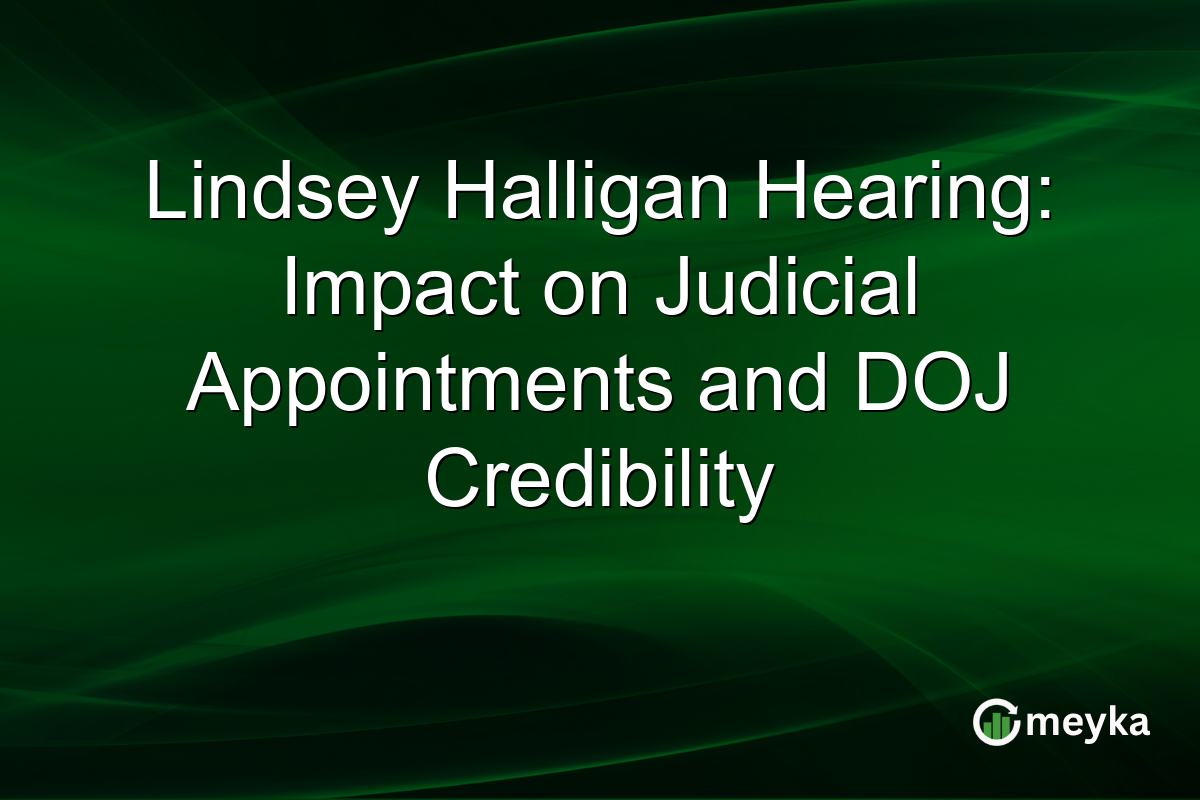Lindsey Halligan Hearing: Impact on Judicial Appointments and DOJ Credibility
The Lindsey Halligan hearing has captured national attention due to its implications on judicial appointments and the credibility of the Department of Justice (DOJ). Discussions are particularly focused on the legal intricacies surrounding her appointment as acting U.S. attorney. This high-stakes legal situation might influence how the DOJ manages politically sensitive prosecutions, especially involving figures like James Comey and Letitia James. Let’s delve into how these proceedings could reshape judicial norms and the DOJ’s credibility moving forward.
Continue Reading on Meyka
This article is available in full on our main platform. Get access to complete analysis, stock insights, and more.
Read Full Article →





